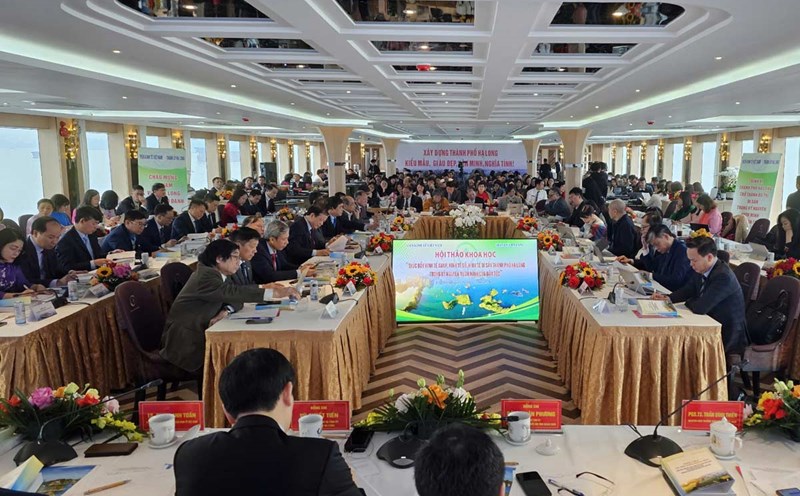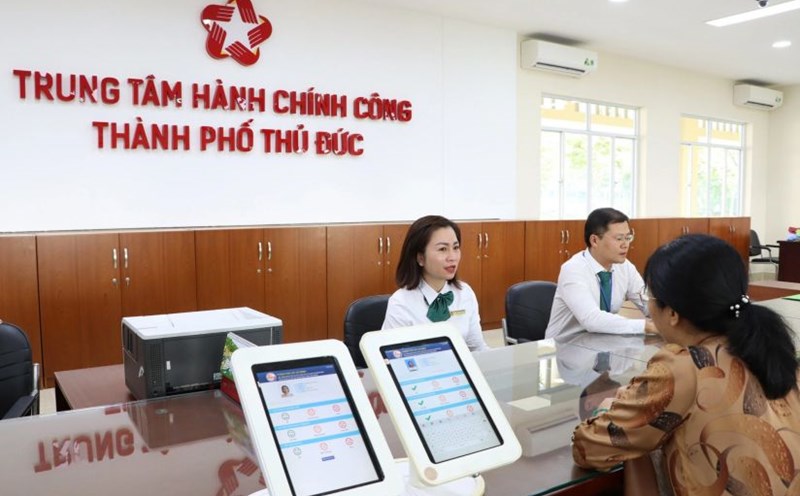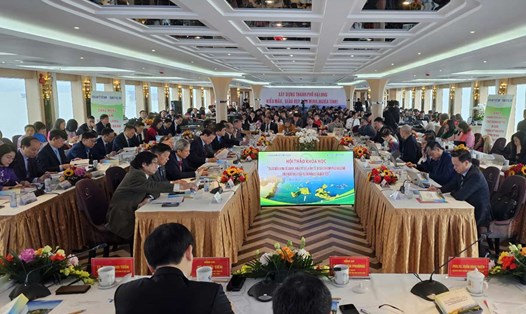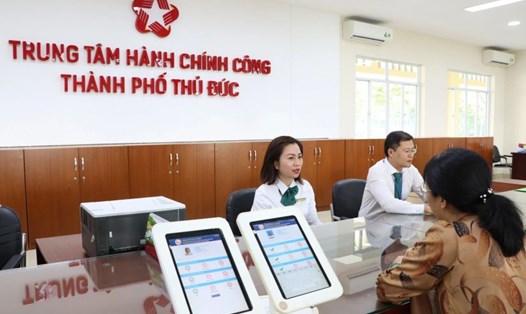Lao Dong Newspaper with the series of articles "Development motivation from digital economy" will record achievements and solutions to develop digital economy in the new era.
Digital economy - a driving force for growth and sustainable development
The fourth industrial revolution is promoting the digitalization trend, making the digital economy an important driving force for socio-economic development. In Vietnam, the digital economy not only promotes innovation and improves businesses, but also opens up opportunities for producers and consumers, improves labor productivity and quality of life, and contributes to sustainable growth.
From the "footprintless" fields
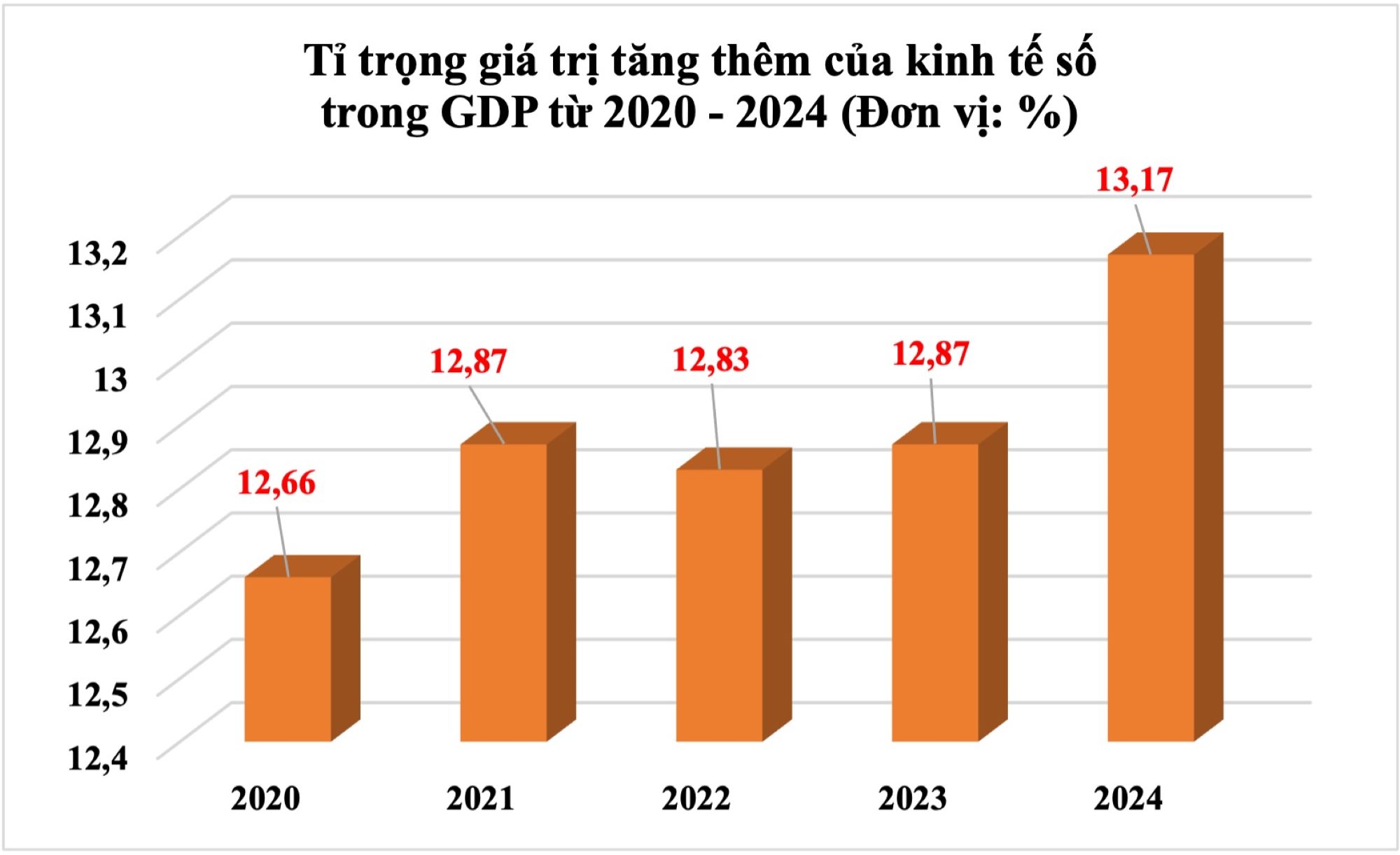
Having worked in the agricultural production sector in Japan, Mr. Le Dinh Manh (Vong Xuyen commune, Phuc Tho district, Hanoi) has experienced the hydroponic vegetable growing model in a greenhouse. Seeing the high economic efficiency of this model, from the beginning of 2023, Mr. Manh returned to Vietnam and applied this technology to his agricultural production model.
Currently, Mr. Manh has 2 hydroponic vegetable greenhouses with a scale of about 1,300m2. Thanks to the application of technology such as sun-cutting machines, misting systems, automatic nutrient supply timers, etc., the work of workers in Mr. Manh's vegetable garden has become much easier.
In Vietnam, the digital economy is not only limited to large corporations or modern offices, but has also spread to the fields and to farmers. The application of digital technology in the agricultural sector is opening up many new opportunities for farmers, helping them improve productivity, product quality and access the market more easily.
Many localities across the country are implementing the "no footprint" field model, applying high technology in all stages of production, from land preparation, sowing, transplanting, spraying pesticides to harvesting, all of which are carried out by modern machinery, minimizing direct human participation. Thanks to synchronous mechanization and the application of science and technology, this model not only improves economic efficiency, reduces production costs but also changes farmers' production thinking, from small-scale to large-scale commodity production.
Following the drone spraying team of Nghia Thang Agricultural Cooperative in Dai Tam Commune (My Xuyen District, Soc Trang Province) to the fields to spray pesticides for farmers, we can see that rice production is now extremely convenient. After observing, choosing a safe landing point with few obstacles, locating the rice field to be sprayed, one member of the team mixes the pesticide and puts it in the tank, the remaining member starts to control the drone. In just 10 minutes, the drone has sprayed evenly over 1 hectare of rice of a household.
“Fast, efficient, farming is very easy now. Spraying 1 hectare of rice in the traditional way takes almost a whole day, hiring workers costs 500,000 VND, spraying by plane only costs 100,000 VND/tank/6,000m2. Thanks to that, production costs are saved a lot,” said farmer Ut Mai.
According to statistics, Soc Trang province currently has over 140 drones for spraying, fertilizing, and sowing rice. People no longer have direct contact with pesticides, reducing environmental, water, and land pollution. Sowing rice by plane helps sow evenly, quickly, frees up labor, and reduces crop costs.
Mr. Ha Sy Dong - Acting Chairman of Quang Tri Provincial People's Committee said that he has requested the Department of Agriculture and Rural Development to advise the Provincial People's Committee to develop specific projects and policies to encourage land consolidation and plot exchange, aiming for "footprint-free" fields to help farmers increase productivity and efficiency in production, and improve the quality of life.

Digital economy grows strongly every year
It can be seen that the digital economy is growing stronger and has a profound impact on most areas of the economy.
Fields such as information technology, artificial intelligence, e-commerce, etc. not only bring positive changes to the way businesses and organizations operate but also open up many new opportunities for both producers and consumers, as well as change the behavior and habits of individuals in society. With the goal of high and sustainable economic growth, the digital economy plays a central role in improving labor productivity, promoting innovation and improving the quality of life.
According to the General Statistics Office, the proportion of added value of the digital economy in GDP in 2024 is estimated to reach 13.17%, with a scale of more than 1.5 million billion VND, equivalent to about more than 62 billion USD, an increase of more than 14% compared to 2023.
Talking to Lao Dong, Ms. Nguyen Thi Thu Huong - Deputy Director of the Department of National Accounts System (General Statistics Office) informed that the reason for the high growth rate of added value of the digital economy in GDP is due to the high growth of core digital economic sectors, especially the manufacturing of electronic products, computers and optical products, accounting for more than 32% (an increase of about 16%); other core digital economic sectors such as: Wholesale of computers, peripherals and software, electronic components, telecommunications, software publishing, telecommunications, computer programming, information portals, etc. accounting for about 30% tend to increase (an increase of nearly 13%) compared to 2023.
Service industries with added value created by the application of information technology in production and business activities as well as in management and operations (also known as digitalization of other economic sectors) tend to increase thanks to the strong application of information technology and digital technology.
On average, in the period 2020-2024, the proportion of added value of the digital economy in GDP is estimated at 12.88%, of which the core digital economy is 7.99% and the digitalization of other economic sectors is 4.89%. Service sectors have an increasing tendency to digitize or apply information technology, reflected in the proportion of added value from more than 6.5% in 2020 to nearly 7.2% in 2024.
"The digitalization trend of industries is increasingly accounting for a large proportion of GDP. From 4.75% in 2020, equivalent to about 0.38 million billion VND, the digitalization proportion has increased to 5.01% in 2024, reaching about 0.58 million billion VND, an increase of 50% compared to 2020. This reflects the efforts of the Government, ministries and localities in promoting the development of information technology, communications and digitalization of economic sectors" - Ms. Nguyen Thi Thu Huong emphasized.
According to the Deputy Director of the National Accounts System Department, in the coming time, Vietnam's digital economy has great potential for development thanks to the promotion of factors such as the popularity of digital applications and a highly skilled technology workforce, especially the active and proactive participation of the entire political system, business community and people.
"With the trend of strongly applying information technology in production, business and management of industries and fields such as trade, finance, banking, and state management, the digital value in GDP will continue to increase in 2025 and the coming years," said Ms. Huong.

